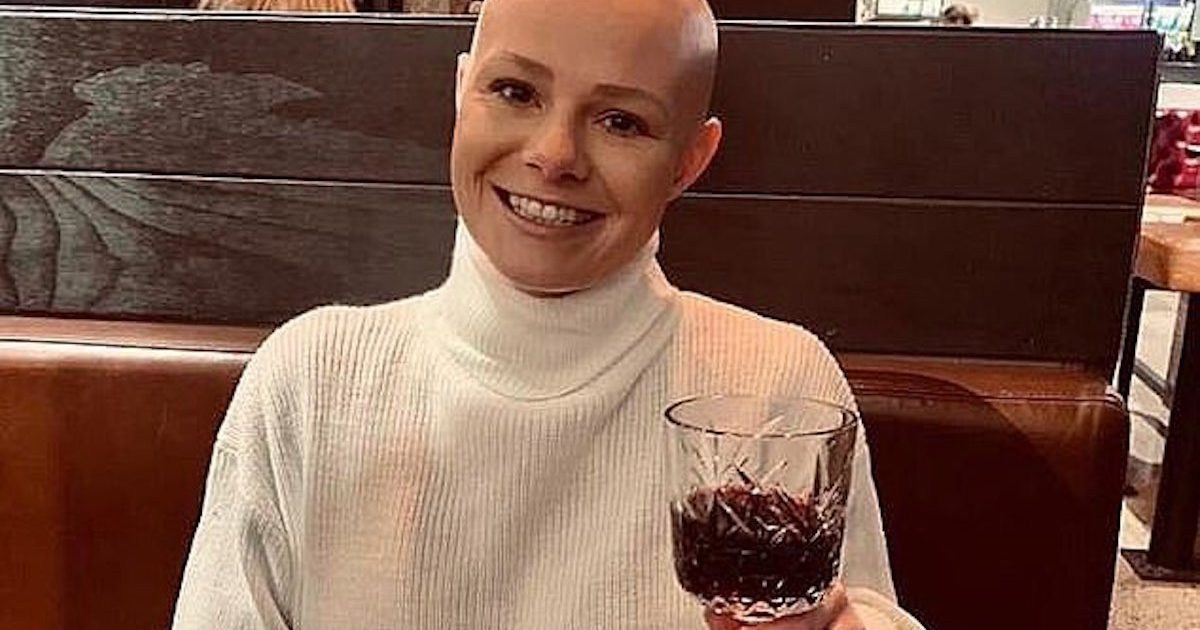Survivor Vows to Make the Most of Life With Cancer
- Geneva Wilson of New Zealand is going ahead and planning her wedding even though she has received a scary cancer prognosis.
- Wilson has triple-negative breast cancer — an aggressive form of the disease. It is her third time battling cancer.
- When a person has metastatic triple negative breast cancer, the typical first line of therapy is chemotherapy.
- In some instances, doctors may attempt to treat the disease with chemotherapy alongside immunotherapy.
Wilson is not going to let cancer get in the way of planning her wedding. "Doctors are telling me to make most of the time I have left," she told Femail. And she's making the most of it by spending loving moments with the people who mean the most to her.
Read MoreWilson first discovered a cancerous lump in her breast when she was a psychology student. She dropped everything to focus on treatment, but even after undergoing chemotherapy, radiotherapy, and a double mastectomy, the cancer came back.
This time, it had spread to her lymph nodes. But she pushed through more treatment, and battled her way back into remission. This time, she finally felt ready to let go of her fear and move on to a cancer-free life.
"When I finished chemo the last time I genuinely thought I was through with it — even though doctors told me there was a high chance of it coming back," she said.
But ultimately, her disease took an unlucky turn. Still, she is planning her wedding and committed to fighting on because she wants to spend as much time as she can with friends and family. And she has a message for other young women like her. She wants women to actively watch for signs of breast cancer, and to be sure not to miss routine screenings.
Dr. Sylvia Adams of NYU Perlmutter Cancer Center says that immunotherapy has been shown for the first time to extend the lives of patients with triple-negative breast cancer.
What is Triple Negative Breast Cancer?
Triple negative breast cancer is one of the most aggressive forms of the disease and accounts for about 15 to 20% of all breast cancers. It's called triple negative because it does not have any of the main drivers of breast cancer — the estrogen receptor, the progesterone receptor, and the HER2 receptor — and consequently doesn't respond to treatments that target them.
Treatment Options
If a patient has metastatic triple-negative breast cancer, the usual first line of therapy is chemotherapy. There are different chemotherapy options depending on how sick someone is with their disease. Triple-negative breast cancer is usually responsive to chemotherapy.
In certain instances, a patient will become resistant to their first line of therapy and will have to switch to another chemotherapy. There are many different chemotherapies that are used for triple-negative breast cancer. There are also different clinical trials that may be available.
There has also been advancements with immunotherapy that can be used alongside chemotherapy for triple-negative cancer patients. It was thought for a while that breast cancers do not generally respond well to immunotherapy but in late 2018, the Food and Drug Administration issued the first ever approval for an immunotherapy treatment for some patients with breast cancer.
In one study, it was shown that an immunotherapy for the first time could extend the lives of patients with this type of breast cancer. In a worldwide study of over 900 women, patients given immunotherapy plus chemotherapy lived 9 1/2 months longer than those given chemotherapy alone. Leading experts in breast cancer said doctors could now employ immunotherapy for triple-negative breast cancer treatment alongside the routine chemotherapy.
Learn more about SurvivorNet's rigorous medical review process.


